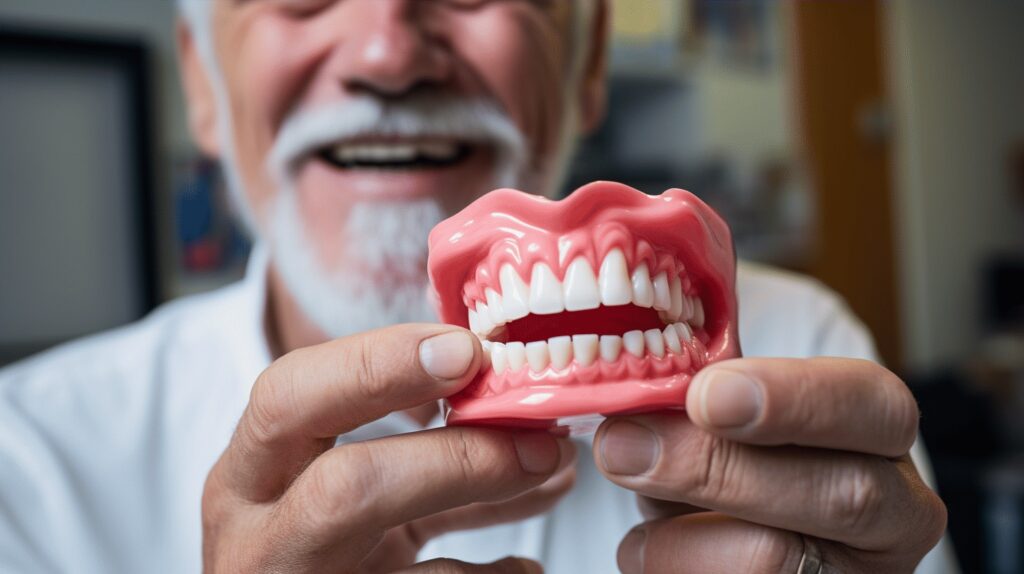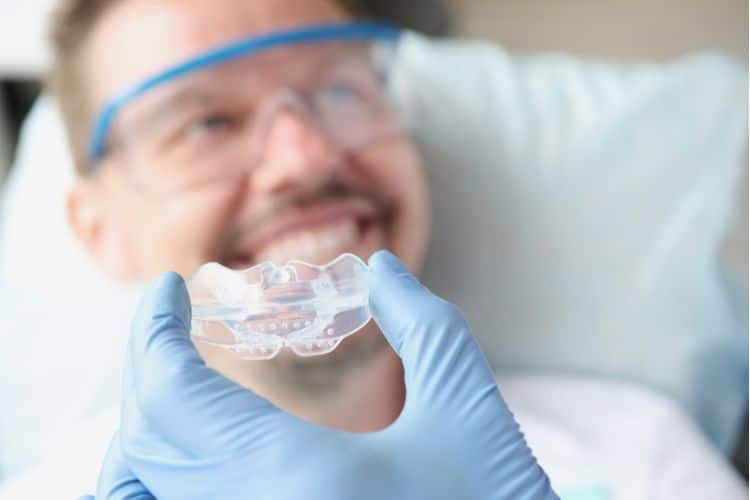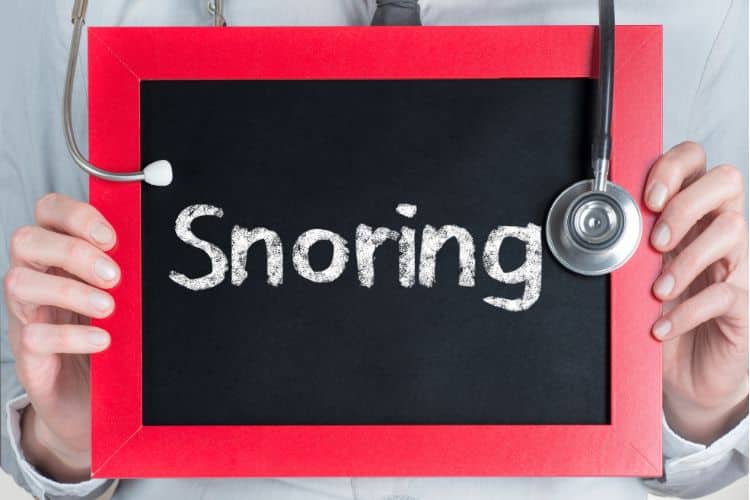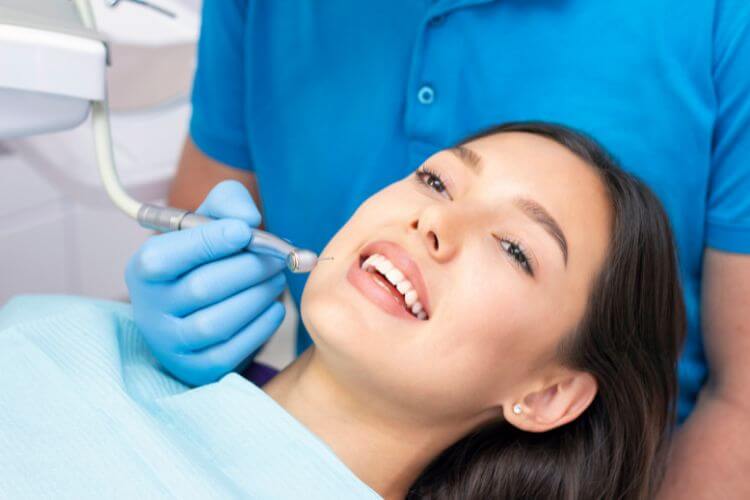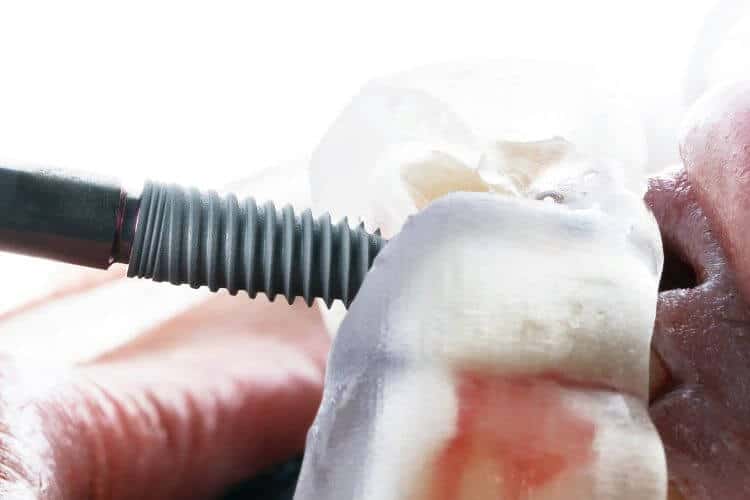Welcome, dear readers! 🙌
We’re here to discuss a topic that isn’t always given much attention but is highly relatable – the significance of emergency dental care for managing unexpected issues like a broken denture. 😬
We all know that keeping our pearly whites healthy is essential. Unfortunately, dental emergencies can come knocking at our doors when we least anticipate them. From a sudden and severe toothache to a chipped tooth, to that annoying broken denture – emergency dental care comes to the rescue in such instances.
In this intriguing dive into dental care, we’ll delve into the prevalence of dental-related crises, the financial and public health implications of neglecting dental care, and, of course, how to cope when a broken denture spells a dental disaster.
Stick with us and discover how a deeper understanding of dental emergencies can help us take better care of our smiles.
Table of Contents
The Prevalence of Dental-Related Emergency Department (ED) Visits
Accidents happen, and sometimes they happen to our teeth. In fact, did you know that approximately 2 million visits to hospital emergency departments (EDs) in the U.S. are due to dental pain?
🏥 Yes, you read that right. Chances are you, or someone you know, has rushed to the emergency room for urgent dental care.
Frequency of ED Visits
Before we delve into the reasons behind such visits, let’s look at the numbers. As per our latest statistics, in 2018 alone, there were over 2 million dental-related ED visits. If you like numbers, that equates to 615.5 visits per 100,000 population. Now that’s a lot of toothaches! 😮
Let’s break it down further.
- Adult visits: 1.7% of adult emergency dental visits culminate in an ER visit for a dental condition.
- Children’s visits: This figure stands at a lower 0.6% in the case of children.
This data provides a clear exposition of why your dentist always insists on regular check-ups – to avoid unexpected visits to the ER!
Increase in Crude Annual Rate
What’s more alarming is the increasing pattern of dental-related ER visits. Year on year, there’s been a significant jump, a trend that imperatively needs to be curtailed. This points to a larger issue of insufficient dental care and awareness, especially in adult populations.
“What’s the solution?”, you may ask.
Well, regular dental check-ups, maintaining proper dental hygiene, and increasing awareness about the importance of dental health could be substantial steps in reducing the frequency of such emergency visits.
Let’s strive to spread smiles, not dental woes. 😊 It’s about time we keep our dental health in check and avoid those unplanned, painful sprints to the ER. After all, a smile is a curve that sets everything straight, and we wouldn’t want anything to mar it, would we?
Financial and Public Health Implications
Let’s delve deep into the financial and public health implications of atraumatic dental pain and the rise in preventable dental conditions.
Cost of Atraumatic Dental Pain
Imagine a throbbing toothache so unbearable that you have to rush to the emergency room. This is a reality for many Americans, with atraumatic dental pain accounting for 1.8% of all ED visits. What’s more concerning is the fact that this dental threat doesn’t just cause physical discomfort, it also burns a hole in our pockets. 😰
Indeed, emergency visits due to non-injury related dental pain cost up to $2.4 billion annually. To put it into perspective:
- That’s enough money to buy over 5 million new iPhone 13 Pro Max devices!
- Or how about this, it could fund the average college tuition for about 48,000 students.
These staggering figures underline the urgent necessity for preventive dental care and fostering better oral health habits nationwide.
Rise in Preventable Dental Conditions
On the other hand, preventable dental conditions also compel many patients to seek immediate medical attention. Surprisingly, these avoidable dental issues account for 1.15% to 2.5% of all ER visits.
These statistics are alarming, considering most of these conditions can be prevented with regular dental check-ups and basic oral hygiene practices like:
- Brushing twice a day with fluoride toothpaste,
- Flossing at least once daily,
- Limiting sugary snacks and beverages,
- And, of course, visiting the dentist regularly! 😁
However, one should not despair. The silver lining here is that these figures also represent tremendous opportunities for health education and interventions.
As it turns out, as a society, we not only have to tackle the financial burden imposed by these dental emergencies but also these are wake-up calls for adopting better dental habits for overall physical health and wellbeing.
In a nutshell, proper oral hygiene isn’t just about sporting a dazzling smile;😃 it’s also an investment in our health and finances. So, let’s take the pledge to make dental care a priority. Your teeth will thank you, and so will your wallet! 💰🪥
Neglected Dental Care
Ignoring routine dental check-ups is not as innocuous as it seems. It’s alarming to learn that a staggering 42% of adults rarely make it to the dentist’s chair for regular check-ups. This trend of avoided dental visits, which we will delve into further, can lead to significant repercussions on overall dental health, particularly in our children.
Lack of Regular Dental Visits
The analogy that “prevention is better than the cure” is incredibly fitting when it comes to dental hygiene. Regular visits to trusted oral health providers are the secret sauce to keeping those pearly whites healthy and radiant.
Why should we be concerned, you ask? Here’s why:
- Nipping issues in the bud: Frequent visits ensure early detection and treatment of potential dental problems. This can save us from more intensive—and expensive—treatments in the long run.
- Regular clean-ups: Plaque and tartar, the notorious twins of tooth decay, are effectively taken care of during regular dental visits.
- Preventing gum disease: Regular brushing doesn’t always protect against gum disease, which can sneak up unnoticed. But, with frequent dental check-ups, the dreaded gum disease doesn’t stand a chance!
“Say yes to dentist’s visits, say no to dental issues”- something to think about, isn’t it?
Impact on Children’s Dental Health
The effects of neglected dental care, however, are most prominent in a very vulnerable demographic – our children. With statistics showing that children in the 5-9-year age group experience the highest number of emergency dental visits, we have an oral health crisis at hand. It’s imperative that we take significant steps to turn back this growing tide.
Consider these repercussions:
- Untreated dental caries: As unattended teeth rot, they can cause severe pain and even serious infections that can impact a child’s ability to eat, sleep, and learn.
- Impact on growth: Children with poor oral health can also experience problems with their speech development, and may struggle with their self-esteem.
- Severe consequences: In extreme cases, untreated dental infections can spread to other parts of the body and potentially lead to more life-threatening conditions.
We all want the best for our children’s future, and that includes their dental health. Let’s ensure our young ones are flashing not just any smile, but a healthy one! 😊
Dealing with a Broken Denture
When it comes to oral care, maintaining a healthy and beautiful smile is often a top priority. However, for those who rely on dentures, there can be an added layer of worry when damage or breakage occurs. Chipping a natural tooth is stressful enough, but dealing with a broken denture can feel like a crisis.
So, what should you do if you find yourself in this situation? Well, keep calm and remember that we’re here for you, offering up expert advice to keep your dental woes at bay. Let’s explore some immediate actions you should take after discovering a broken denture and the role you play in preserving oral health.
1. Don’t Try to Fix It Yourself: This point cannot be overstated—avoid the temptation to fix the broken denture yourself. It’s essential to respect your dental devices; dentures are delicate and require professional care to repair.
2. Clean and Store Safely: Rinse the broken parts under warm running water. Avoid using hot water as it can warp the denture. Store the pieces in a clean, safe place until you can get professional help. Remember to keep them moist to prevent them from drying out and changing shape.
3. Call Your Dentist: As soon as you recognize any damage to your denture, immediately call your dentist. Express the urgency and schedule an appointment at the earliest.
4. Avoid Using a Damaged Denture: A broken denture can lead to additional oral issues such as sores, cuts, or infections. So, refrain from using the damaged appliance until it’s repaired.
If you’ve found yourself in the middle of a dental emergency like this, take a deep breath and reflect on our guide to Handling Dental Emergencies. By promptly acting and seeking professional medical help, you ensure the longevity of your dentures and protect your oral health.
Confidence in our smiles is something we all value, so don’t let the crisis of a broken denture get you down. Reach out to your dentist, stick to the prescribed care, and you’ll find that hardy, attractive smile back in no time. Remember, our teeth, natural or not, are central to our health and our confidence in presenting ourselves to the world. As such, ensuring they are well cared-for must never be overlooked, no matter how stressful the situation might be.
Seeking Emergency Dental Care
Let’s face it, dental emergencies can be a real scare! 🦷 The anxiety heightens when we’re unsure whether the issue at hand warrants an immediate visit to the dentist or if it can be delayed. It’s in such situations that we need to buckle up and understand when to seek immediate treatment. So, stick with us as we shed light on this important dental health topic.
First off, emergency dental care could range from sudden severe pain to dental injuries sustained from accidents. Of course, our mouths are troopers, they can handle minor discomforts such as sensitivity or mild toothache. But when things turn up a notch, it’s crucial to recognize the signs and navigate our way to emergency care swiftly.
Here are the common conditions that should have you speed-dialing your dentist’s number:
- Excruciating toothache – It’s the kind of pain that cannot be soothed by over-the-counter pain relievers and disrupts your daily tasks.
- Abscessed tooth – This is often identified by a terrible toothache, swollen gums, facial swelling, or pus drainage. Your tooth is basically in distress, screaming for attention! 🚨
- Chipped or broken tooth – Especially if it’s causing you pain or has sharp edges that could injure your tongue or cheeks.
- Knocked-out tooth – Time is of the essence here. The quicker you get to the dentist, the better the chances of saving the tooth. 🕑
- Loose dental fillings or crowns – These could cause discomfort, and in no time could lead to further complications like tooth decay.
- Bleeding, swollen, or painful gums – These are usually symptoms of gum disease, which if not addressed urgently, could lead to tooth loss.
Understanding these signs can make all the difference, knowing when to wait and when to rush. Ignoring the alarm bells can lead to permanent damage or even end up costing more to treat later. The bottom line is, when it comes to our dental health, we can’t afford to play guessing games. While it might be tempting to suppress the pain or discomfort, remember that it’s often a warning sign that something deeper and potentially serious is going on.
So, the next time you experience a dental concern, don’t just chew on it. Recognize the signs, and if the need arises, do not hesitate to seek immediate treatment. Trust us, your teeth will thank you! Capture this golden rule: In dental emergencies, when in doubt, reach out! 📞
Conclusion
In light of all this, it’s clear that swift action is necessary with any dental emergency, such as a broken denture, to prevent further complications. Prolonged neglect of dental issues may lead to higher rates of preventable dental conditions and costly atraumatic dental pains, not to mention the potential negative impact on children’s dental health.
At Wilshire Smile Studio, we provide compassionate and effective emergency dental care services, ensuring that a broken denture does not disrupt your daily life any longer than necessary. With a team of highly experienced professionals dedicated to patient comfort and satisfaction, we offer a wide range of affordable dental services to promote healthy smiles.
Always remember, your dental health is a critical part of your overall well-being! So, do not hesitate to act when a dental emergency strikes. The team at Wilshire Smile Studio is just a click away, ready to serve you. 💪😄
By being proactive and informed, we can create healthier smiles and, by extension, a healthier community. Let’s continue to uphold this responsibility each day, one patient, and one smile at a time. Book your appointment today at Wilshire Smile Studio.👈🦷
Remember, a healthy mouth is a healthy you! 💙
Call us at (323) DEN-TIST (336-8478) or book an appointment online for a free consultation at Wilshire Smile Studio.
Frequently Asked Questions
1. What should I do if my denture breaks?
If your denture breaks, it is important to remain calm. Remove any broken pieces from your mouth and gently rinse your mouth with warm water. Contact your dentist immediately to schedule an emergency appointment.
2. Can I fix my broken denture at home?
It is not recommended to fix your broken denture at home as you may cause further damage. Denture repair requires professional expertise, so it is best to contact your dentist or a denture specialist for a proper repair.
3. How long does it take to repair a broken denture?
The time it takes to repair a broken denture can vary depending on the extent of the damage. In most cases, denture repairs can be done within a few hours or a couple of days. Your dentist will provide you with a more accurate timeline.
4. Can I still wear my denture if it has a minor crack?
If your denture has a minor crack, it is best to avoid wearing it until it is properly repaired. Continuing to wear a cracked denture can cause further damage and may lead to discomfort while using it.
5. How can I prevent my denture from breaking?
To prevent your denture from breaking, handle it with care when cleaning or removing it. Avoid exposing it to excessive force, such as biting down on hard foods or using your denture as a tool. Regular visits to your dentist for check-ups can also help detect any potential issues early on.


